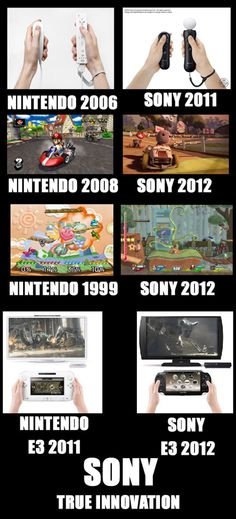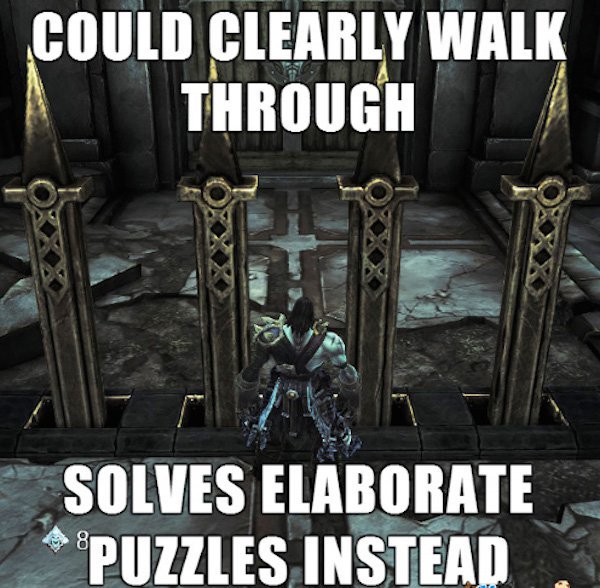What makes games addictive - the perspective of a marketer
Making consumers addicted to a product is the wet dream of every marketer. Games are an excellent example of the type of addiction marketers want and seek. But what are the components of this addiction? Why do we like games so much, and how are marketers using it to sell us stuff?

Just a bit of chemistry
Our brain is built is such way that we get tiny little doses of pleasure when we succeed. Even if it's just by chance. Success leads to positive feedback (for example, an achievement in the game), which in turn makes the brain release dopamine – the neurochemical that affects the sensation of pleasure (among others).
So what makes us addicted to games is the feeling of success. Many marketers use this by creating fake discounts, buy-this-get-that-free deals and supposed "VIP offers".
The illusion of control and the freedom to choose
According to research, there's a direct connection between the feeling of "freedom" and happiness. Many "Sandbox" games are based on this idea of (nearly) complete freedom of choice. Even games like Sim City provide an illusion of control. And this makes us return to these games to get that feeling.
So feeling in control makes us happy. Markers know that very well. So they try to create an illusion of control to keep us coming back. A good example is the glasses industry in the US (recently covered by the wonderful "Adam Ruins Everything") - you think you have a choice, but all the brands and stores are owned by the same company.

Ease of use and simplicity
One of the reasons for game beta testers and product control groups is the need to observe users reaction and learning process of the product. If the game is not easy enough to figure out and play - many players will abandon it quickly. A great example of this is Candy Crush (I might mention this game again). The rules are very simple, so not much thinking is required when you play.
This is true for consumer products as well. If the user interface isn't "easy" enough, consumers will go looking elsewhere. A good example of an interface that's so easy it's addictive is Tinder. I don't define it as a game, but some might.
Something we know, something we don't
People respond differently to innovation, and for the majority of us it's hard to adjust. Imagine if Playstations suddenly came with a controller for your foot. It would be really hard for them to make a product like that penetrate the market simply because we've always used our hands for gaming. And not just that - specific fingers on specific buttons.
You can usually tell a PC gamer by the rate of degradation of the print on the letters WASD on their keyboard. Because most games use those keys for navigating in many games. If a game suddenly had navigation keys somewhere else on the keyboard - users would have a harder time adjusting, and so they'd abandon the game.

We're invested
Investing in something will usually make you want to continue using it. In games, the very fact you spend time on the game, will make you want to return. I mean, I didn't spend an hour crafting this epic armor just to quit right now, right? Just one more battle... Just one!!!
So that.
With products it's usually series of books, TV shows and even toys that make us want to "catch them all". We start, so we want to keep playing.
Good things come to those who wait?
That old saying is pretty much just that. A saying. But what causes it is a false perception in our brain called "hedonic adaptation". In games, this can backfire with a massive buildup and failure to deliver. A good example of that is Mass Effect 3, where many gamers were very disappointed with the ending.
However, by making people "wait for it", marketers and game producers trick us into experiencing a much more positive experience when we've waited out the time we need to. An example of this working well in a game is the timed war table missions in Dragon Age: Inquisition.
We don't like to lose
Another psychological reason for addiction to games is our dislike of losing. Often when we lose, our brain compensates by making us want to play again until we win.
Just about all gambling business is based on this. And of course - the sales that scream that they're just about to end and the store is closing and so on. No one wants to miss out on a deal, am I right?
Puzzles make us happy
We're all a little OCD. Organizing things is one of those basic things babies learn at a very young age by fitting shapes into other shapes. Great examples of games that involve organizing stuff are Tetris, Minecraft and pretty much any simulator from the Sims and Tycoon variety.
In marketing you might guess how this is used. Any "collect them all" or matching products are a trick to make your brain this it's solving a puzzle. Which is awesome and gratifying, to your brain.
And of course - Ikea.

May I have another?
The main sign of addiction is of course repetition. If you keep doing something, it becomes a habit. If you feel anxious or distressed without it - it's an addiction.
Games give you doses of dopamine when you win, make you hate it when you lose, cause you to feel invested and make you wait for gratification. So we want to keep winning and feeling good about it. And this can be seen in pretty much all games. You want to go back to them because they make you feel good when you win.
This creates a loop. A great example in marketing "end of season" sales. Every end of season you see consumers invading the shops en masse just to buy more stuff they don't need.
It's a habit, not an addiction, right? :)

(all illustrations via Pixabay, memes are memes)
-=-=-=-=-=-

@techslut Great piece. As someone who, just yesterday, ended a 587-consecutive-day hacking streak in Ingress as a result of a forced update, shitty service, and no time, I can relate to this all too well. I still feel physically ill when I think about it.
Hey, I spend too much time playing Hearthstone. I don't judge. We're wired like that. :)
Very Good post!! I am also developing a 2D game for Steemit. Thank you for sharing with us @techslut
I know. I upvoted it earlier. :) Now also following you.
Thank you @techslut
"You can usually tell a PC gamer by the rate of degradation of the print on the letters WASD on their keyboard"
You got me there! Very interesting blog.
Thank you! :)
I am for ever lost in an inquiry of our relationship to games. Great read here. I am not sure if I know the answers but I have a real appreciation for the questions. I think games can be useful for a society and that a society that doesn't' respect games probably won't thrive vs one that does. We could have games that are helpful vs games that are useless.
Resteemed, awesome stuff :).... Makes me to ponder how to trick these techniques beyond themselves, to show ourselves how we form our reality with these silly behaviour models.
And I always love Ikea metaphors, can be used in surprisingly many different contexts.
LOL. Yes. Thank the Swedes for Ikea! A home stuff store that is a punchline.
awesome post!! You could say that what is happening with games/bet on steemit https://steemit.com/challenge/@cryptohazard/there-will-be-more-and-more-games-on-steemit-and-you-should-play
Awesome article!
It's the type of stuff I write for work. Honestly. Decided to see how it would be accepted on Steemit. Well, the readers loved it. So I will be posting stuff about marketing, gaming and gamification in the future.
Looking forward to it!